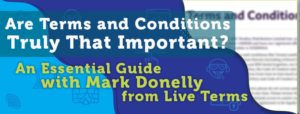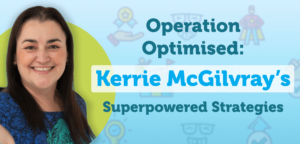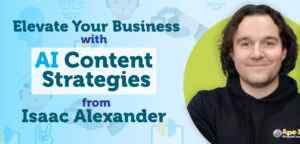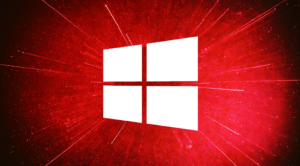My name is Joshua Lewis. I’m from Dorks Delivered, and I’ve got another company called Business Efficiency Experts. Business Efficiency Experts has been around for about five years, and Dorks Delivered for 12 years, so we’ve been going around for quite a bit. We started off as an IT company, and then we found that there was more of a need for businesses to be utilising technology better. Since then, I’ve started writing as a columnist for my entrepreneur magazine. I’ve been featured on News.com.au and soon to be published in every entrepreneur’s guide focusing on your marketing.
Time to Talk About Your Business
Today, I’m going to be talking about your business, more than my business. So what I want to do is found out, who here is representing their own business. Yup. So who here is not, and here on someone else’s behalf? Okay. So we just got one here, that’s right, always the bloody troublemaker. It’s going to be a very interactive session with the way we’re going to go through with everything, and we’re going to split off into groups and it’s going to be fun, it’s going to be exciting. Are we pumped? Yeah? Look, we’ve got to annoy the other groups. Yeah? Woo.
Okay, perfect. Raise your hand if you have kids? I already know Carolyn has kids, and we’ve got Amanda with kids, so a lot of us have kids here, which is good. I’m lucky enough not to. But I’ve got 10 nieces and nephews, and treat them like my own. Who here would say they spend enough time with their kids? Who is there for all their critical moments in their life? Who would rather spend more time, or have at least the flexibility to be able to step in and out?
You May Also Like:
• Adapt to Changing Business Environment and Keep Your Business Relevant
• 5 Key Growth Strategies for Every Business – No Matter What Type of Business You’re In
• Grow Your Business Using Today’s Technology
I was talking to Tony, I was talking about some of the automation or some of the things that he’s put into his business which allow for better time management. And in particular we were talking about some of the Lean Management, which is fantastic, and I will be touching on that for some of it.
Who started their business to earn money? Yeah. What did everyone else start it for? Who started their business to have more freedom? So we’ve got a few hands. It’s nearly 50/50. Who believes that they’ve achieved both goals in that they’re earning money and they can step in an out of the office at any time?
Ideally, we’re going to split into three groups. I want everyone to have a think about what your time is worth per hour. I’m going to start and go around the room. Carolyn, what would you say your time is worth per hour?
Carolyn: $350.
Joshua Lewis: $350. Peta?
Peta: I can’t value. It’s… Time is invaluable.
Joshua Lewis: Invaluable. Time spent is worthwhile. Tony, how about yourself?
Tony: Probably $2,50.
Joshua Lewis: $2,50. That’s good, that brings your averages back here. Tracey?
Tracey: I don’t know what it’s worth but I charge $450 an hour.
Joshua Lewis: Okay. And if we just continue around the room. I didn’t actually get your name, sorry.
Amelia: Oh, Amelia.
Joshua Lewis: Amelia. is worth?
Amelia: Roughly about what I charge.
Joshua Lewis: Okay, no worries.
Melody: I charge between $200 and $300 an hour.
Joshua Lewis: It gets wishy-washy, doesn’t it?
Amanda: So I’m not sure. I’m not sure.
Joshua Lewis: That’s okay.
So has anybody been adding up the totals? I haven’t been, but we’re going to go back around with a more solid answer and everyone’s saying what everyone’s said. I’d say everyone’s roughly saying what, two, three hundred dollars an hour, yeah? And it’s about like what, one, two, three, four, five, six, seven, eight, nine, 10, 11 of us in the room. So there’s about $3,000 an hour being spent in this room right now, and for my talk that’s going to go for 20, 25 minutes, it means you’re spending roughly about $1,000 to $1,500 to listen to me, so thanks guys! I appreciate that and I’m going to make sure your time is spent well. I like that!
If your business went down, how much would that cost you? A lot of people don’t really take that into effect. We were talking before with Mark from ETG, a fantastic person who makes sure that businesses stay up and running, he’s going to be answering the phone within 30 seconds. You know that your business is going to be able to stay alive and stay up and running, which is what you want. You don’t want to have downtime, you don’t want to have those problems. But people do have downtime, people get pregnant, people go on holidays, get sick, people change jobs, die, pass away, all these different terrible things and nice things that can happen. Ultimately it means you have more problems in trying to cope with the amount of hours that are either coming in or with hours that are going out, depending on the person that’s disappeared. Either way, your business needs automation. Automation is super important, because if you can automate elements of your business, you no longer have to have those employees doing those repetitious tasks.
So I’m going to go through and go around the room and ask everyone what their pain point is in business, and what they are wanting to overcome, and then I’m going to explain different ways that you can go about doing that using automation. So I’m going to start the other way around and start with Amanda first.
Amanda: Uh, so I don’t need a lot of staff in my office but when that one staff member is not there, it’s an issue.
Joshua Lewis: What do your staff predominantly focus on?
Amanda: So the pain point… Oh well, it would be answering phones and answering emails.
Joshua Lewis: Okay, and at the moment how many employees do you have?
Amanda: Well, out on the field there’s 15, and in the office… we’re kind of in a vortex at the moment, there only needs about one to one and a half.
Joshua Lewis: And that can be a problem because you’re at that stage where if you have one and then you grow to two, you have to have twice as much work for people to answer the phones or they’re costing heaps of money.
Amanda: Yes. Joshua Lewis: So it’s a good answer. What would you say your biggest pain point is in business?
Melody: I’m a consultant so people… I’d say filling in tenders. There’re so many different formats out there and it would be nice if they were standardised from your perspective.
Joshua Lewis: Absolutely.
Melody: It would help to standardise them so consulting with companies that are putting and that are filling in those tenders are spending less in because at the end of the day, translate in dollars for each individual out here of resource cost.
Joshua Lewis: Makes a lot of sense and IT is one the industries that they haven’t really standardised yet. A lot of the civil industries they have standardised tenders, but not in IT. And knowingly there’s a lot of… it seems that there’s not much legislation around IT, which is annoying to know who’s good and who’s a cowboy, etc. How about you Brendan?
Brendan: Probably managing emails. Joshua Lewis: Managing emails? So how many emails do you get a day? Brendan: Last time I counted, probably about 360.
Joshua Lewis: Yeah, that’s a lot, that’s a lot of time. Continue around, is anyone also relating to some of these problems? Does anybody have anything to be different to these that you’d say is a big problem that you’d have in business? I know you’re only just starting out so that’s…
Brendan: Yes, my widest pain point is to bring awareness to some, so making awareness, that would be my pain point.
Joshua Lewis: Okay, and definitely that could be somebody getting your name out, they’re getting your brand out, they’re having people know about you, and especially you’re in a marketing company but you need to still get yourself marketed out there, so it’s a bit of a conundrum. Does anyone else have any different pain points that they would…? Yeah, Peta?
Peta: Hi, organising customers to meet their deadlines.
Joshua Lewis: Okay, and how many customers do you have that you find where you run into that problem with?
Peta: 80%
Joshua Lewis: 80%, that’s a lot. Okay. So, are you one of them?
Amanda: No.
Joshua Lewis: Well that’s not good.
Amanda: An automatic puncher would be good.
Joshua Lewis: Yeah, that’s right. Well people getting paid is a huge pain point. I’m surprised no-one bought that up. People lapsing on invoices or waiting for invoices to get paid.
Amanda: I have an automatic solution.
Joshua Lewis: Are you using Zero or?
Amanda: I’m using Zero integrated with Integripay.
Joshua Lewis: Yeah, cool. So we also have Zero integrated with Integripay, so word up to the solution.
Amanda: I don’t have customers that owe me money, so I take it from them.
Joshua Lewis: Yeah, and do you only deal with customers that you can set up directive requests with?
Amanda: Yes.
Yeah, cool. So that’s a level of automation that you’ve put into your business, which is awesome. It overcomes that pain. So I’m going to try to go around the room and answer some of the questions. At the moment there’s heaps of different places that you can jump onto that give you the ability to have a very scalable per call call centre where they can be answering five calls a day or 500 calls a day, and you can pay a very small amount per call. Now although that’s not necessarily automating the calls being answered, that’s offsetting the responsibilities allowing growth. Which the problem isn’t really your calls not being answered as far as I can see, it’s the growth and having to bring someone on having extra tasks that need to be allocated to that person.
So we went to a solution where we found the same issue. So our business started off as an IT company very similar to Michael’s but different, and we found by automating so much of the business, 98% of it was being done in the back of house and we didn’t have any customers talking to us, which is great but it meant that we then had to have so much work to have one person sitting there answering the phones or have the technicians being interrupted while they’re doing other work. We found there’s solutions, one’s called Call Assist and that we use all Euron CRM systems, Euron training manuals, the whole lot, and they can just sit there and answer the phone for you as part of your business. So would that overcome your problem?
Amanda: Yeah.
Joshua Lewis: Woo!
Amanda: Yay! Big clap, that’s great! Hey, one down! So I’m just going to go through some of my other notes here. As I said I didn’t really get to rehearse or do this. This is all off the cuff right now. So more freedom. See automation doesn’t stop at the office. You need to make sure that the things that you’re doing around the home aren’t being wasted, your time isn’t being wasted there as well. Who mows their lawn or has a lawn to mow? Yeah? No lawns? You have lawns, have you been mowing your lawns yet?
Brendan: I mow the lawn, yes.
Joshua Lewis: Yeah. And…
Brendan: I’m thinking of astro turf
Joshua Lewis: Not a bad idea.
Tony: I’m just trying to think, for a weekend… you’re away from the family. But it depends on how much you like your family. If you’re able to do it with a beer in your hand, you can get a ride-on or something. Well, I found that definitely things like mowing the lawn you can outsource that stuff, pruning the gardens, you can outsource that stuff. There are always different ways to repurpose the systems that you’re using at home, the way that you’re utilising your kids if you’ve got kids, to make sure that you’re automating as much as possible so that the time you are spending with them is valuable time. Because if everyone’s time here, as you worked out, is worth about $300 an hour, the time that you’re spending at home is worth the same amount as the time that you’re spending at work. You shouldn’t be changing the dollar amount because you’re at home.
If your time is worth $300 at work, you shouldn’t be mowing the lawn and taking an hour to do that. You can pay someone $60 to do that every two weeks and they’ll mow the lawn and do all the things that you need to have done. And that’s where you need to really make sure that your time is important. So automation isn’t just about technology, it’s about putting in place solutions and peoples and procedures to make sure that people are doing the jobs for you and you’re not having to stress that maybe you have a big week, a big month at work, or you go away traveling and then you come home and the lawn’s up here, and if you’re a lawn connoisseur, which I am, that means I say I like grass but it’s not what it means at all…
Anyway, if you are a lawn connoisseur and then you have the grass grow up, it just completely destroys off the whole ecosystem in the lawn, creates too much shade and all these other different problems, and that lawn analogy goes into every aspect of your life. There should be always ways to make your business and your life better. So Carolyn was saying that she’s using a product that helps her out with LinkedIn, but it’s not helping her out right now with LinkedIn because the automation behind it is broken. But we’ve all said roughly, again just using rough numbers, our per hour rate is about $300 an hour. For $8 an hour you can get a virtual assistant online that would be sitting there looking at it, monitoring it and doing anything else, and that goes for your emails as well. For $8 an hour and they don’t even have to be employed full-time, you can have them doing that. Some people are for and against outsourcing. Who’s for outsourcing and who’s…? Yeah? That’s the majority. Who’s against outsourcing?
So why don’t you like outsourcing? If there’s no outsourcing, your IT company wouldn’t exist.
Brendan: Because when I was outsourcing for the Indian company and I got to a customer site, they want to pay in Indian dollars and I’ve got to make a living here. And also I’m looking at… you know you’ve got to balance books, billing the capability here or are you going to destroy the capability here and is this going to manufacture offshore everything? So then I had this dream one day and “Hey what will my kids do if we end up pushing all the manufacturing offshore, pushing all the IT development offshore, what will people do?” So we need to find a balance where you know this is like “We will go forward…”
Joshua Lewis: Absolutely!
Brendan: There’s less crime… People need some kind of motivation in life to get up and do something in life.
That’s absolutely right! And most of us are operating a small business. Does anyone have more than 15 employees here? Yeah, so the big thing with automation is if you’re running a one man shop and you’re able to automate some of your tasks, even if you’ve got two or three or five people and you’re able to automate some of your tasks or axe off some of those tasks, those tasks are giving you time to be able to focus on bringing in new business as opposed to giving you… where you’re just spending a mundane task going through 350 emails in a day. If you know that they’re being categorised into most important, middle important and least important, which I discussed in a podcast on our Business for Freedom podcast channel, you’re able to think “Okay, this is important.”
Only spend 15 minutes in the morning and then one 15-minute break at lunch and then know exactly how much you’re spending. If you’re able to outsource the majority of it, although you are still creating wealth over there and you are outsourcing some of the dollars, it’s a job that you wouldn’t have been able to afford to outsource here. And don’t outsource and go for the cheapest bidder, go for the person that understands your business, understands the model and you’re not undercutting everyone. Eight dollars, US, an hour is someone that is going to go to do the work that you want them to do and normally where they’re getting paid, they’re getting paid significantly less than that. So you’re still helping out them and they’re giving you more time to get to grow your business which lets you employ more people locally, which is ultimately what you want to be able to do. All of us as business owners need to be the best salesperson at what you’re doing, although it’s a dirty word and no-one likes salesperson, we’re the most passionate people about what we do. And so you need to be able to be there in front of people, which is the problem that you are having, be there in front of people so that people can hear your story and hear how passionate you are. When I started in business, I was introverted, overweight and did not want to talk to anyone. But your business doesn’t work very well like that, and so my extrovertedness has come as a learned behaviour. After losing 38 kilos, it was easy to learn the behaviour, I will be honest, but it’s definitely a learned behaviour. But you need to be in front of people because that’s where things start to happen, where things really start to show. And if you’re there reading emails or buggering around with LinkedIn and other stuff, you’re not going to be able to be in front of the people to make a difference. Does that all make sense? Does anyone have any questions around that?
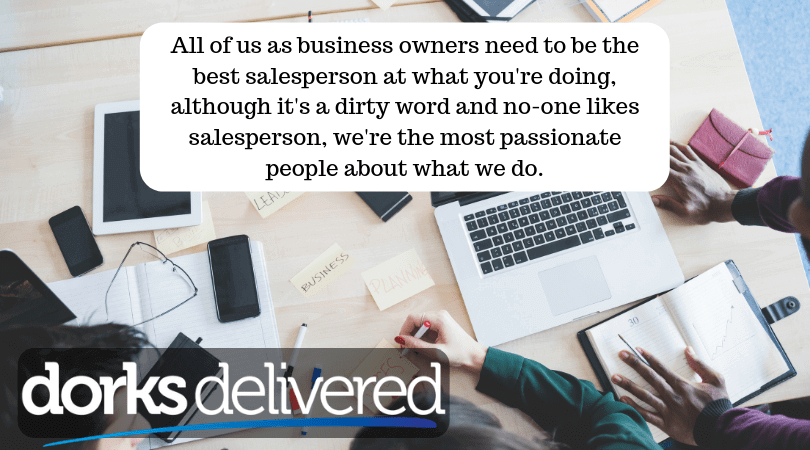
A team is the most important aspect. As soon as you go from a single man band to a woman band to a larger team, that’s when you really need to start investing in the right people. The News.Com interview that I did was on selecting the right candidates and filtering out any of the crap that you get on Seek, and it’s definitely a process. You want to make sure you’ve got a team of unicorns that work together with your business to help your business grow into the future, and it sounds really wishy-washy but knowing that they’re able to do things, and some people don’t employ… because they go “Ah, they don’t know what I know. I’ve been in business too long. I know everything that I’m doing and I’m just so good at it.” The problem is, you are, and that means that you won’t find someone like you. But if you’re able to find someone that does 80% of the work and they’re 80% of the way there, that’s only 20% that you have to do.
And as they grow with you, it becomes easier and they become your right-hand man or lady, or left-wing lady or right-hand man, and that’s where you want to make sure your systems are growing as well with the people. You want to make sure you’re documenting down your processes, it doesn’t matter what size business you’re in. I started off in business by myself, two years later got my first employee, thought this is amazing, and continued through. Two years after that we’re going gangbusters. I was turning over more money that I could ever do. I was doing a lot of big contracts with Education Queensland. The problem came about when my offsider, as a 27-year-old and working 65 to 70-hour weeks at a stroke, and that then meant I was inundated, had to cancel contracts and it was shit spot to be at in business. I grew way too quickly and that’s the same sort of dilemma that you’re having, where do you put someone on and waste a whole bunch of money until they grow up, or do you just grow with the one person and then when you’re too busy, not have time to train someone, which is another dilemma.
But automating the on-boarding process is as simple as writing down every single task that you do per day in business, writing it in your daily list, your weekly list, your monthly list. I’ve got this exact process written out when I started doing it a number of years ago, there was 500 items on the list and I thought “My God, I have to go through 500 things. I’m doing 500 things at the moment. How am I going to do this?” And like eating an elephant just one bite at a time, and I’ve got anything on there from how do you go about replacing your coffee filters to how do you answer the phone to anything… how to onboard a customer, how to let a customer leave, how to onboard a staff member, absolutely every single process is there. It doesn’t matter what size business you’re in, start documenting it down because when you can bring someone on, instead of having three or four months for them to be trained up, it’s a two-week period which is automating the process, which is giving you more time to be out there finding new business and making a business better.
So as an element of what we do in business and how I’ve automated my life and my business, I can work 10 hours a week. Of the 10 hours that I work a week, I can spend one hour a week making YouTube videos, blogs and podcasts, and that gives me enough podcasts, that’s three podcasts a week, two YouTube videos a week, five blogs a week, and it’s only taking me an hour to do that whole process. The other nine hours, I’m talking with existing customers and finding new business, potentially things like this, but I only need to work 10 hours a week with what I’m doing, with the way I’ve automated everything. Most people, if you said “I need you to write five blogs a week”… because our web guy told us it’s going to get us better ranking, which it will, you won’t have the time to write five blog articles in a week. But if you have it automated to a spot, we’re able to do that, which we’ve done that through a 78-page document which details exactly how to go about doing it, we then no longer have this problem and it only takes us an hour, which is awesome.
So think about what you do. What takes up heaps of time in your business? What would allow you to remove that time away from your business and have it spent with your kids and with your family, going on holidays, mowing the lawn if you love relaxing by mowing the lawn… while reflecting on it. But that’s definitely what you need to sort of just hone in and try and work out, so… yeah. Any questions? There’s got to be a couple of questions.
Amanda: I’ve got a question.
Joshua Lewis: Sure.
Amanda: At what point did you realise what this… that you needed to do, this more automation, at what point did you realise the benefit was offsetting the cost? How did you work that out?
Joshua Lewis: If I was to start my business again… when you first start your business, a lot of the time you go “Okay, I’m just waiting for a new client and I’ve got all this spare time.” If I’d started it then, I would’ve seen the benefits significantly sooner. Already now, if anyone has any question in the room, I’ve noted it down and then I’m answering that in a podcast, YouTube video or blog. So to notice the difference, I would say, it’s probably about 18 months if I had to put a number on it and that is a process of a lot of documentation, but it meant that when I went from the next staff member and everything had been documented, the staff member after that and the staff member after that and the staff member after that, I had zero training.
I did the interviewing with them and then that was it. The other person that I trained up to start off with, which is when I wrote the documentation, was the person who then trained up the next batch of people, so the business over the last number of years has grown to 11 employees and I’ve trained up three or so of them, that would be about it. Everything else has happened through documents that have already written up which everyone hates doing and everyone agrees with that. No-one wants to write that up, yeah? You can offset that as well, so doing something as simple as just clicking record on your computer screen, you can record what’s happening and then have that transcribed and outsourced.
Tony, you’d have to sit down with people in meetings all the time and take notes on what they’re saying and very specific particulars on potentially companies, holding companies for assets and all sorts of stuff, and have to note that all down, yeah? And what are you using to do that at the moment?
Tony: I need to get clients’ confidence that everything I do for them is in confidence. The last thing that I want for my space is when recording them on file, I’ll use diagrams and staples and a whiteboard to explain things in a diagrammatical way and I find that they’re more responsive to that. Yeah, and that file might be saved and it’s accessed through the network so I can pass the job onto another staff member and they can pick up the file.
Joshua Lewis: So the difference between recording it as you’re dictating it onto the computer versus recording it through a digital means nowadays has become very, very blurred, especially like Alexa and Google Home and everything else already recording what we’re saying all the time, one of the key words. I found a lot of the time customers are more comfortable, especially if they already know, that as you said that you’ve got a built-in trust with them and they then understand that what they’re saying is in confidence so if they were to say something untoward, you would have that potentially written down if you really wanted to anyway.
There’s a fantastic tool called Otter on your phone which, if you download Otter, it’ll have everything that you say, it’ll dictate what you say and if we were talking together in the same conversation, it would dictate your voice and my voice separately and then it’ll pick up on different key words throughout the discussion and then you can add that to a file against that customer, which then means if you had… if we were to catch up and I was talk about some of the R&D stuff that I’m doing and I was talking about the trust distribution that we have and all the different models of our business, and he went “I know we caught up with Josh a year ago and I can’t remember exactly what he said”, this not only transcribes the whole lot, but transcribes it and adds key words and notes that are completely searchable down to the exact moment things were said, and it’s completely free for 10 hours a month, so a pretty cool tool.
Amelia: What’s it called? Otter?
Joshua Lewis: Otter, like the animal.
Amelia: Yeah, it’s a cool app.
Joshua Lewis: Otter.ai is the name, it’s on Apple.
Amelia: Is that spelt correctly?
Joshua Lewis: Yeah, yeah, like the animals that hold hands when they go to sleep. Yeah, so that would definitely help out a lot of businesses that have no taking… I would imagine that would help you out as well when you’re trying to sort of key around different mortgages and how they want things to work and where income’s coming from and how they can offset different expenses, and so it’s an invaluable tool. But there’s all these tools out there that can really help your business out, and the number one thing you need to be doing is asking the IT company that you’re working with, or companies that you’re working with, to see how you can automate any of the processes in your business. There should never be double-data entry. You should never be having someone fill out a form or 5-page application that states “Here is… List your income, your partner’s income” and all these other different things. I’m sure you’ve got them in a digital form, yeah? You don’t have people…? Yeah, okay, cool! That means you’re ahead of the curve.
Most people don’t and it’s so stupid because you’re asking them to fill this out so that you can make money, and it’s a hurdle that you’ve put in front of them to fill out so that you can make money. You need to sort of remove any of the hurdles and make it so it’s easy for people to spend money with you. You want people to spend money with you and not have hurdles like that.
Brendan: What’s your number one piece of software for automation that you favour?
Joshua Lewis: That could be used diagnostically with any business?
Brendan: Yeah.
Joshua Lewis: From a marketing perspective, it’s all very hard to answer. Otter is fantastic for note-taking and that kind of relates to most people in this room, which is why I bought that one up. But from a marketing perspective, Active Campaign I think is fantastic. It’s really, really useful but there’s… if you’re looking to having professional note-taking… because that doesn’t go to any other third parties, that’s just shared with you and done through artificial intelligence to work out who’s saying what. There’s another tool called Rev, so the way our podcast works… I’m recording this now, this’ll turn into a podcast which is cool. All the ums and ahs and dirty jokes get edited out or not, and then that thing gets transcribed and then gets images added and then key parts are all outlined, and that’s all done through other people, so outsourcing would be the ultimate way to automate your business, but that’s not really a tool as you said. But from a transcribing perspective, Rev.com, fantastic, Otter is fantastic, Active Campaign amazing. What sort of element would you like to automate?
Brendan: As much as possible.
Joshua Lewis: Email follow-ups when you have someone call through, there’s auto follow-up as an Outlook add-in which would be touching on what you were saying before. If someone hasn’t responded to you, it automatically sends them an email back and you can tell if they’ve opened it, if they’ve looked at it, if they’ve responded or what the situation is.
Carolyn: You’ve won awards for what you do, right? Joshua Lewis: Yeah. Carolyn: How do you stay on top of this game?
Joshua Lewis: I hate it. It’s a good question. Just the best way to do it is by not looking within your field, because if you’re at any user meeting that you ever go to, you’re already there learning the same information as your competitors at the same time, which means you, if you don’t have as much work force to implement it, are learning it later, or you’re implementing it later which means your customers and the ongoing effect is then later. So looking through other industries to learn about any of these different tools is my number one way to do that, so I go to lots of different industry meetings that have nothing to do with technology and IT. But then, yeah… Dorks Delivered is the IT, I’m Business Efficiency Experts is the business that I’ve been talking about with automation and getting your life back, which is described heavily in the Business for Freedom podcasts.
But you really want to just make sure that you know what direction you want your business to go in as well. If your business is there to… well like a hobby business to have a bit of side hustle, a bit more money coming in, it’s a completely different story. If that is what you want to be leaving your legacy to your kids and that’s why you need to be building it up so that you can allow yourself to not be the primary key person in the business, so you can step out and in but still have the incomes. Does that make sense?
Carolyn: Yeah.
Joshua Lewis: Cool! Cool! Any other questions?
Joshua Lewis: No-one’s asked about the book! What about the book! So the “Go-Giver” is something I believe in very, very strongly. Bob Burg has a fantastic range of books. I don’t know who he is personally, but it sounds like I’m doing a sales pitch for him. It’s all about giving more than what you’re… and you’ll receive more. So you give more, you give more information, you give everything that you can. Any bit of… anyone that ever called me up, I would be more than happy talking on the phone or catching up for lunch or coffee and going through any problem that they have, because ultimately… and you guys should all be the same because ultimately you are all the best at what you do.
And is anyone familiar with the Dunning-Kruger Effect? It’s a statement that says “The more you know, the less you think you know.” Anyone that does not think that they’re the best at what they do, is because they’re already more knowledgeable than their peers who haven’t gone as deep into it as you. So everyone should be comfortable enough to talk and give the information to their clients as much as you can, and don’t try and sell information, give it all away for free. That’s why we started the YouTube channel and we found it to be very, very effective for all of our clients, more effective than even person-to-person conversations because it gives them a digital fridge magnet that comes through each week, they get to see what’s happening, they get to understand from a technical pers… sorry, what’s happening technically from a perspective of an advantage for a business owner.
But he describes some of the different ways and how that benefits and how that comes back tenfold, so everyone needs to… we had a raffle here last time, man! That’s why I bought the book. What is this?
Tracey: I’ll buy a ticket.
Joshua Lewis: You’ll buy a ticket, sweet! Everyone put their business cards into a bowl, it’s not even a fishbowl here. Hey, there you go, perfect! I think I’ve got half of the business cards. Okay, ready?
Amanda: Have you got the business card in a box or are you going to just say a name perhaps?
Carolyn: Probably
Joshua Lewis: So I bought a book! I bought a book and everything!
Carolyn: But we have to take it off your hands.
Joshua Lewis: It’s a fantastic book. It’s definitely… it’s great! I’ve actually got another…
Amanda: If I win, I’ll share it.
Joshua Lewis: I’ve got another book he has on what he calls a success formula which is just a smaller book around the same sort of principles, but more definitely based around sales more than just life, and how to do everything.
Joshua Lewis: Sweet! Well, did everyone enjoy that today?
Carolyn: Yes!
Joshua Lewis: So you’re all going to be on like a podcast and a blog and everything else.
Peta: Thank you!
Joshua Lewis: And you’ll get an automated email from me with the latest blog that’s just come through, and me asking you all about your hobbies and that, it was all done while I was sitting here, so utilise your time. Do it!
[module-379]


